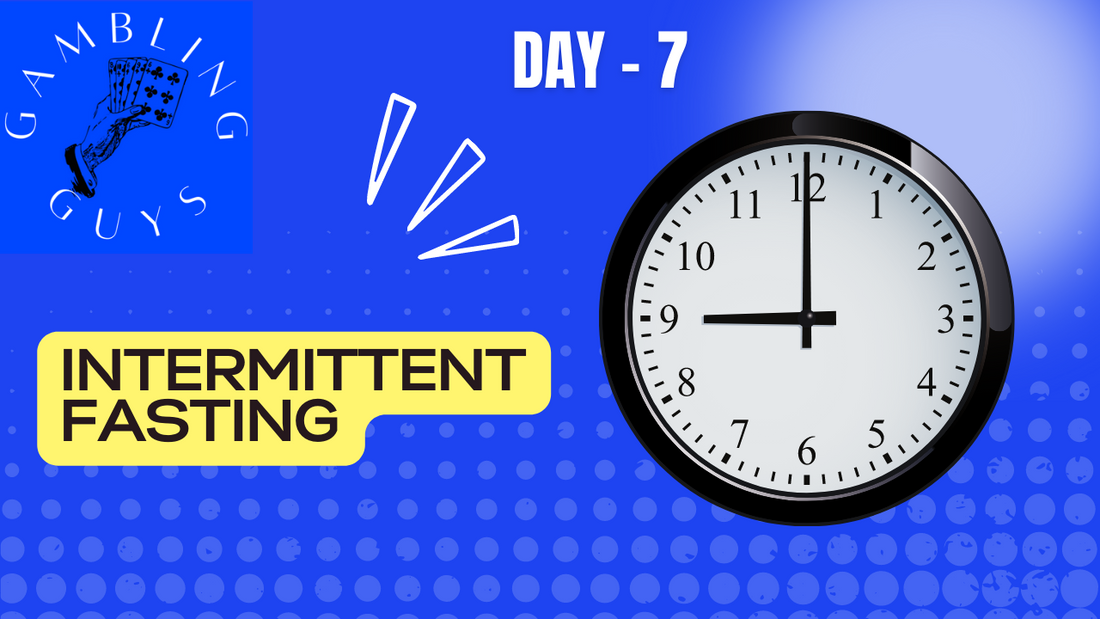Congratulations on completing day seven of your fitness and wellness challenge! Today, we're going to dive what we feel is a game changer with huge benefits. Intermittent fasting works for us because it allows us to be flexible with our eating windows and lets us structure our days based on what we have going on. Remember that everyone's body is different and you should always be mindful of how your body is feeling and telling you.
Intermittent fasting has become increasingly popular in recent years as a way to lose weight, improve health, and boost longevity. In this blog post, we will dive into the ins and outs of intermittent fasting, including the benefits, different types of fasting, tips for getting started, and potential risks.
What is intermittent fasting?
Intermittent fasting is a pattern of eating that involves periods of fasting followed by periods of eating. It is not a diet, but rather a way of structuring your meals throughout the day or week. There are many different types of intermittent fasting, but the most popular methods include:
-
Time-restricted feeding: This involves limiting your eating to a specific time window each day, such as 8 hours. For example, you might eat between 12 pm and 8 pm and fast for the remaining 16 hours.
-
Alternate day fasting: This involves alternating between days of normal eating and days of fasting. On fasting days, you might consume only 500-600 calories.
-
5:2 diet: This involves eating normally for five days of the week and restricting calories to 500-600 on two non-consecutive days.
Benefits of intermittent fasting:
-
Weight loss: Intermittent fasting can help you lose weight by reducing your calorie intake and boosting your metabolism.
-
Improved insulin sensitivity: Intermittent fasting can improve insulin sensitivity, which can reduce the risk of developing type 2 diabetes.
-
Lower inflammation: Intermittent fasting can reduce inflammation in the body, which is linked to many chronic diseases.
-
Improved brain function: Intermittent fasting can improve brain function and increase the production of brain-derived neurotrophic factor (BDNF), a protein that is important for brain health.
-
Longevity: Intermittent fasting can increase lifespan and improve overall health and wellbeing.
Tips for getting started with intermittent fasting:
-
Start slow: If you're new to intermittent fasting, start with a time-restricted feeding schedule, such as 12-8 pm. Once you get used to this, you can gradually increase the fasting window.
-
Stay hydrated: Drink plenty of water during fasting periods to stay hydrated and stave off hunger.
-
Listen to your body: If you're feeling dizzy or lightheaded, it's important to break your fast and eat something.
-
Keep busy: Staying busy during fasting periods can help distract you from hunger and keep your mind off food.
-
Eat nutrient-dense foods: When breaking your fast, focus on consuming nutrient-dense foods like fruits, vegetables, lean protein, and healthy fats.
Potential risks of intermittent fasting:
-
Nutrient deficiencies: If you're not consuming enough nutrients during eating periods, you may develop nutrient deficiencies.
-
Disordered eating: Intermittent fasting can lead to disordered eating patterns, especially in individuals with a history of eating disorders.
-
Low blood sugar: Fasting can cause a drop in blood sugar levels, which can be dangerous for individuals with diabetes or other medical conditions.
-
Dehydration: Fasting can cause dehydration, especially if you're not drinking enough water.
-
Headaches: Fasting can cause headaches, especially in the early stages when your body is adjusting to the new eating pattern.
In conclusion, intermittent fasting can be a safe and effective way to improve your health, boost weight loss, and increase longevity. However, it's important to approach intermittent fasting with caution and ensure that you're consuming a balanced and nutrient-dense diet during eating periods. By following the tips and recommendations outlined in this blog post, you can set yourself up for success with intermittent fasting. As always, listen to your body and consult with a healthcare professional before making any significant dietary choices.
Remember, the key to success in your fitness and wellness journey is to find a sustainable approach that works for you and your lifestyle. Keep up the great work and get ready to conquer day eight!

